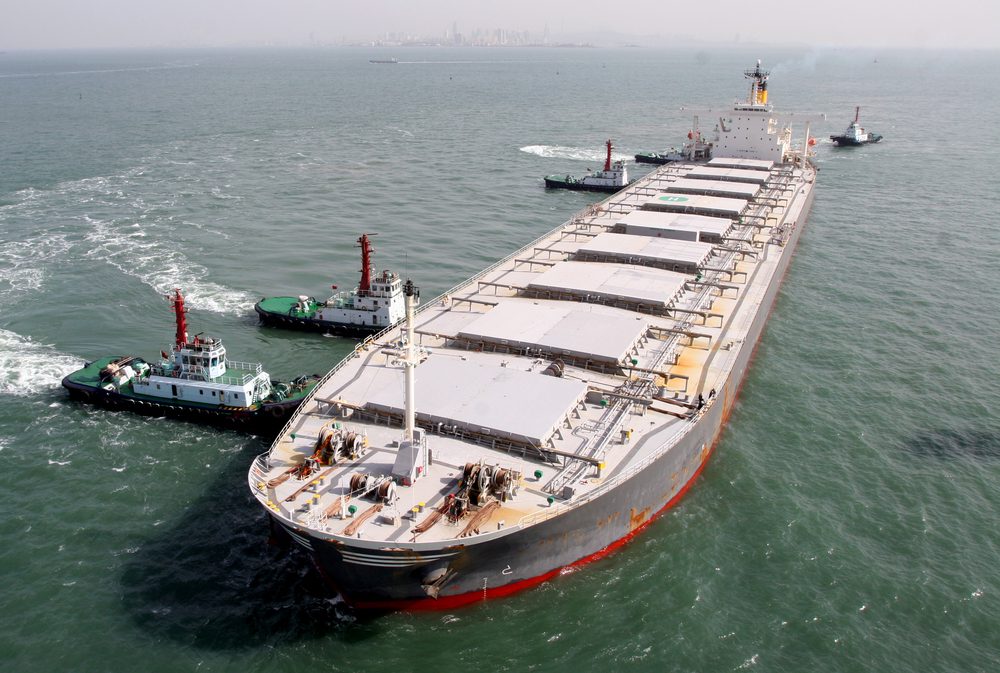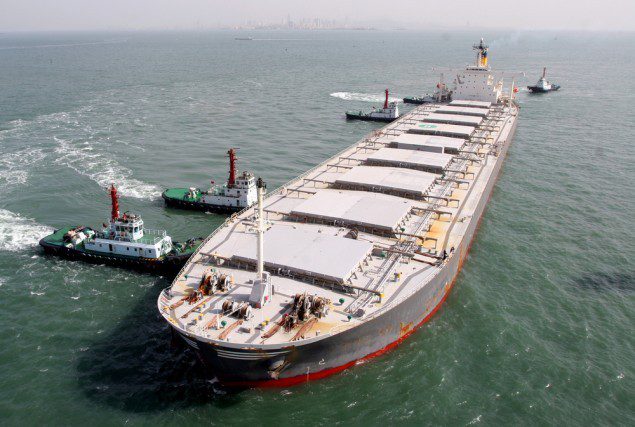Chinese Seafarers Face Crew Change Challenges
By Ann Koh (Bloomberg) Chinese seafarers weary of the pandemic are returning home to celebrate the Spring Festival early next year, adding to a shortage of truckers and port workers in...


By Krystal Chia and Haidi Lun (Bloomberg) — The global commodity-shipping industry faces an extremely challenging quarter as the impact of the coronavirus outbreak in China adds to other headwinds including seasonally low demand and the impact of recent fuel-rule changes, according to IHS Markit.
The spreading health emergency in Asia’s top economy, the world’s largest importer of iron ore, has sent shock waves through raw material markets, and the companies that ferry goods across the world’s oceans. Freight rates have swooned amid gathering indications that demand for cargoes will slump.
There are signs of congestion building up at ports, and reports mills are cutting output, Rahul Kapoor, global head of commodity analytics and research for maritime and trade, told Bloomberg Television. The virus will hit China’s growth by as much as 1%, which is negative for shipping demand, he said.
The shipping industry is facing a “crisis in demand in the near term” as its heavily reliant on Chinese business, Kapoor said. “The first quarter is already a wipeout, at least for the commodity shippers,” he said.
The Baltic Dry Index — a broad gauge of demand for vessels — has collapsed to the lowest level since 2016 as the crisis in China has escalated and signs of disruption have emerged around the world. Among them, China’s copper buyers are asking Chilean miners to delay shipments due to port shutdowns.
Coronavirus Disrupts Global Container Shipping
The health of the iron ore trade is central to bulk-shipping’s fortunes, with top producers Australia and Brazil exporting more than 1 billion tons of the steel-making material each year. As the virus scare has deepened, futures in Singapore have sunk 13% this year. Steel prices have also dropped.
Reflecting challenges within China, the leading steel grouping warned of transport snarls, weaker demand, and a near-term situation that doesn’t look optimistic. Mills should adjust production schedules based on orders, finances and ability to transport materials, the China Iron & Steel Association said.
The coronavirus is “spreading fast and having a significant impact on the Chinese economy,” according to S&P Global Ratings, which said demand for commodities may be affected for several months. The crisis is seen stabilizing globally in April, allowing demand and prices to gradually rise, it said.
The number of deaths in mainland China rose to 563 as of Feb. 5, according to the National Health Commission, with confirmed cases topping 28,000.
Virus Fears Prompt Shipping Restraints on Vessels From China
A recovery in shipping will be slow and prolonged over the next few months, according to Kapoor. There’s potential for government stimulus in the second half, which may help demand, he said.
–With assistance from Shery Ahn.
© 2019 Bloomberg L.PThis article contains reporting from Bloomberg, published under license.

Sign up for gCaptain’s newsletter and never miss an update

Subscribe to gCaptain Daily and stay informed with the latest global maritime and offshore news
Essential news coupled with the finest maritime content sourced from across the globe.
Sign Up